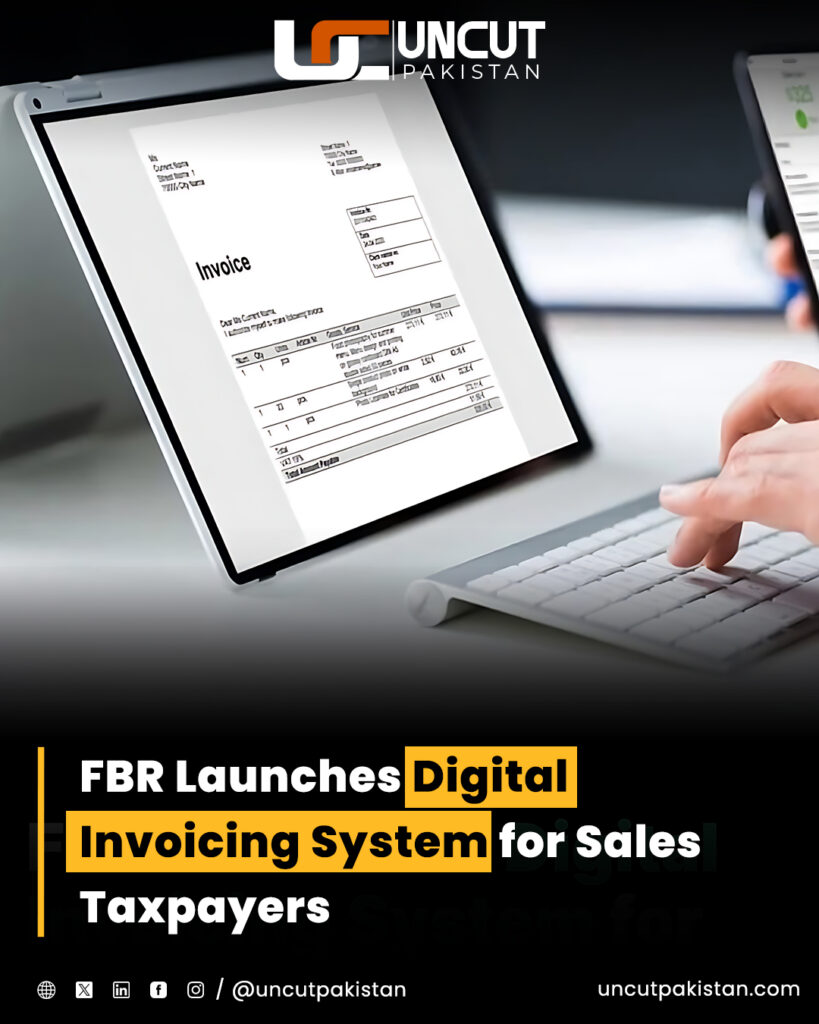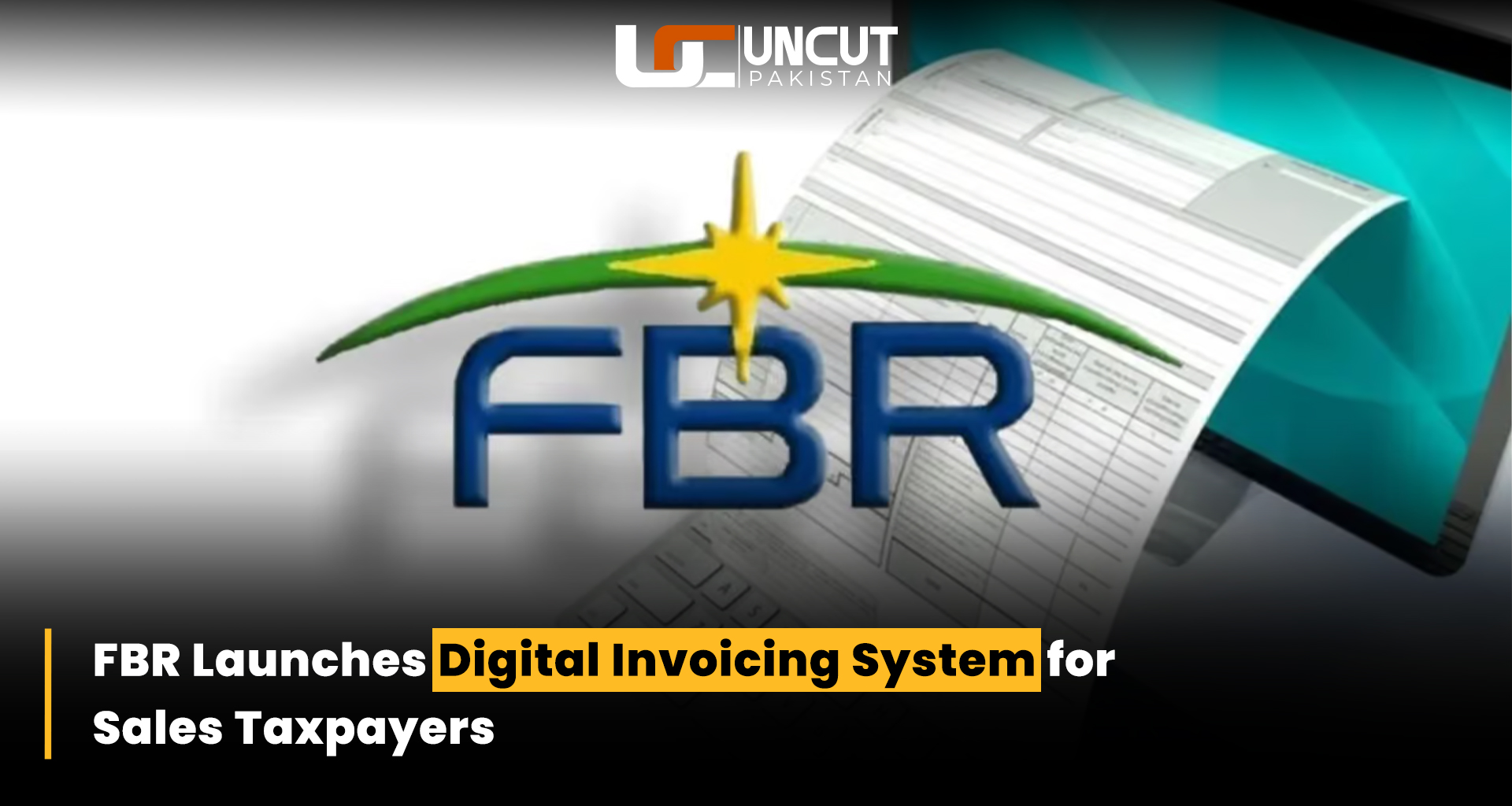The Federal Board of Revenue (FBR) has officially launched a Digital Invoicing System for sales taxpayers in Pakistan, marking a significant step toward modernizing the country’s tax infrastructure and ensuring greater transparency in business transactions.
This initiative is part of the government’s broader push for digital transformation, tax compliance, and documentation of the economy. By shifting to an electronic invoicing system, FBR aims to reduce tax evasion, improve record-keeping, and bring more businesses into the formal sector.
According to FBR officials, the system will enable sales taxpayers to issue, receive, and manage invoices electronically. Each invoice will carry a unique identification number generated by the system, ensuring that all transactions are properly documented and verifiable. This digital trail will not only make it harder for businesses to conceal sales but also provide FBR with real-time monitoring capabilities.
The digital invoicing system is also expected to simplify processes for registered businesses, making tax filing and compliance more efficient. Instead of manually preparing and submitting invoices, taxpayers can now use the digital system to automatically record their transactions, calculate payable taxes, and maintain digital archives for future reference.

One of the key features of the new system is integration with Point-of-Sale (POS) systems and business software, enabling companies to seamlessly generate digital invoices without disrupting daily operations. This will particularly benefit retailers, wholesalers, and manufacturing units that deal with large volumes of transactions.
Business associations have welcomed the move, acknowledging that while the transition may require initial adjustments, the long-term benefits are substantial. Reduced paperwork, lower risk of audits, and enhanced credibility in financial reporting are some of the positive impacts expected from the system.
Moreover, experts believe this step could strengthen Pakistan’s efforts to expand its tax base. Currently, the country faces a significant challenge of tax evasion and under-reporting of sales. With digital invoicing, it will become increasingly difficult for businesses to hide their actual revenues.
At the same time, FBR has assured taxpayers that it will provide technical support and training sessions to ensure a smooth adoption of the system. Special help desks and online guidance portals are being set up to assist businesses in registering and using the new platform effectively.
This development is also aligned with global best practices, as many countries around the world, including members of the OECD, have already adopted electronic invoicing systems to strengthen tax administration and reduce leakages.
If implemented successfully, Pakistan’s digital invoicing system could significantly improve tax revenue collection, foster a culture of transparency, and strengthen investor confidence in the economy.
As the system goes live, businesses across Pakistan are being encouraged to register and integrate their operations to ensure compliance and take advantage of the streamlined process.

